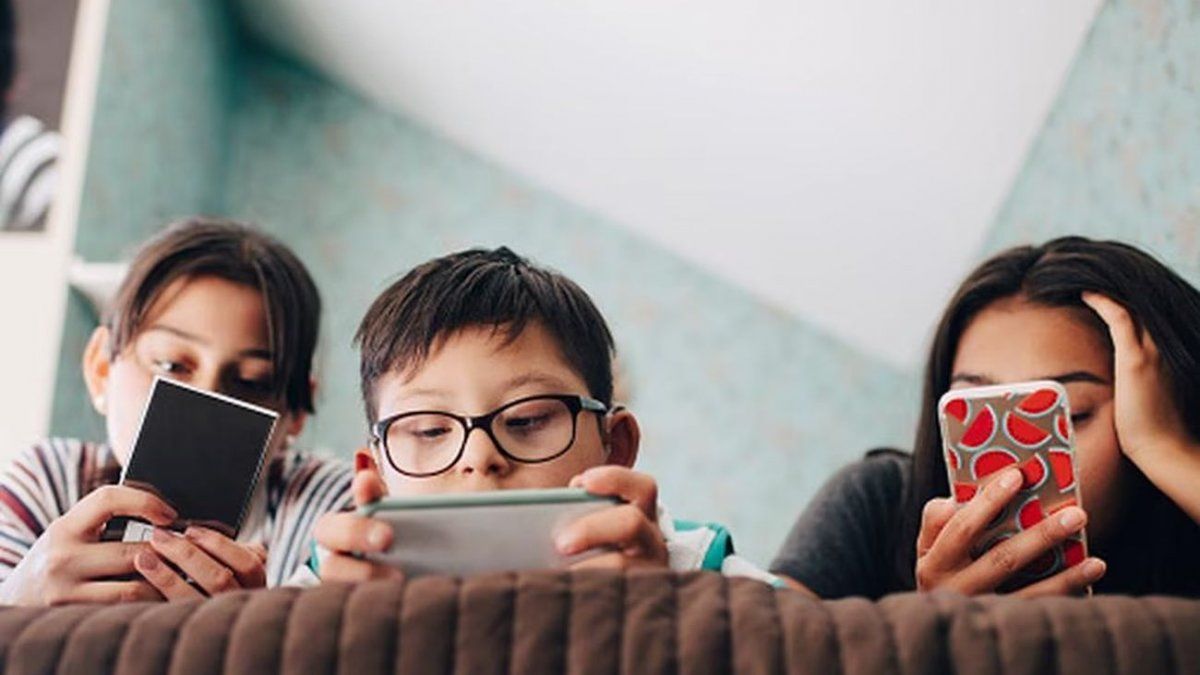This is how it is, growing up is scary. Here, in Japan and in Washington. Since growing up is scary, kids rely on three crutches to encourage themselves to grow: the consumption of alcohol and psychoactive substances, screens as a refuge from the vicissitudes of suffering, and very early sexuality at the rhythm of hormones and not emotions.
All alternatives aim to reduce the risk of suffering from the unpredictability of life itself. A “call now” to dopamine that guarantees immediate satisfaction. Hand in hand with “everyone takes”, “everyone smokes”, “everyone bets”, “everyone goes” we have naturalized a reality in a worrying way as a social body with a generation of resigned adults. And the question once again is: Do we do something or do we keep looking?
There is a false paradigm that says that new generations are “digital natives.” I understand that this is a figure of speech, but there are many people who take it as dogma and justify everything based on that. The reality is that boys are not born with a screen attached to the umbilical cord. We adults are the ones who provide them with screens so they can have a moment of peace and watch a series, cook or be with a partner.
Bread for today, hunger for tomorrow. Too much screen time is one of the problems recognized by the World Health Organization as a worrying and growing diagnosis. Children lose the most valuable part of childhood and it is a shame. I say once again, we live in times of devices on and looks off.
The point, and on this I want to leave some tools, is how we help our children enter the world of technology by differentiating something that has dangerously blurred in terms of its limits, I mean the private world and the public world. Intimacy has crossed the borders of what is reasonable and the eye of the networks controls, monitors and regulates a large part of the lives of those of us who live in this world.
Increase in anxiety and sleep disorders, social isolation, the latent risk of WhatsApp caves that invite our children to gamble illegally with the false promise of making money with just one click and drag them down the path of gambling addiction, dopamine, and everything we don’t want for our children.
Faced with this scenario, and to be part of the solution, I share with readers a simple toolbox for families of young boys and girls:
Social networks
Let us encourage its careful and prudent use. In this way, we will take care of the private world of our children, so that they can sustain the difference between the outside and the inside. Let’s not be hackers of our children, let’s appeal to the essential bond, trust. Trust that is built from the cradle, from example.
Let’s set priorities
Play, learning, the development of social skills and the incorporation of values must be a priority. The use of technology should not disrupt these basic functions.
Let’s give the example
Parents must teach by example. You cannot set a limit with a cell phone in your hand, nor be hyperconnected when meeting as a family.
I say it once again, our children don’t listen to us all the time (sometimes we give very boring speeches) but they don’t stop looking at us and imitating us.
Regulate times
In young children, delay the bond with screens as much as possible. Clearly establish schedules and rules for the use of technology.
Give me time, but not rushed time
Share recreational, expressive, sports activities, etc. with your children. Children do not laugh in the same way when they play on the computer as when they do it with peers and friends.
Live in the real world rather than the virtual one
Let us remember that a child who looks at a keyboard misses the possibility of looking at others and opening up to the breadth of the world. Let’s share at least half an hour a day without devices on, of any kind, with the people we love. Souls are not nourished by thumbs up or “likes” on walls. Hugs are, and I never tire of repeating it, irreplaceable.
Avoid isolation
Traits of isolation and social anxiety (fear of relating) find in technology an ally to hide and not face reality. Let’s encourage moments during the day of devices turned off and gazes turned on. Let us raise powerful children, with the power to choose, to be responsible, to decide for themselves.
May we never lose the habit of keeping paper photo albums, endearing objects with the smell of childhood, memories in little boxes with cellophane so they don’t get lost, books with the scent of books, stories not on Instagram, but in our memories, in the chest of memories. I say it once again, times have changed, the essence remains, fortunately, the same.
Psychologist (MN. 13486)
Source: Ambito
I am a 24-year-old writer and journalist who has been working in the news industry for the past two years. I write primarily about market news, so if you’re looking for insights into what’s going on in the stock market or economic indicators, you’ve come to the right place. I also dabble in writing articles on lifestyle trends and pop culture news.




